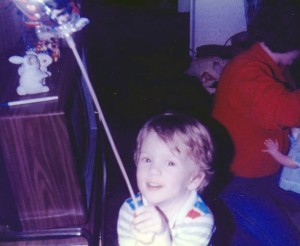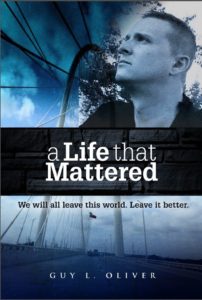An immutable truth cannot be told except in its entirety. To truly understand a thing it must be examined from every perspective. Such is the case with the story of my son.
 Life is complicated and, for that reason, we want to distill it to a few digestible talking points; I suspect that is nothing new. I suspect with equal certainty, though, that this proclivity is compounded by the ease with which both information and possessions are both available and discardable.
Life is complicated and, for that reason, we want to distill it to a few digestible talking points; I suspect that is nothing new. I suspect with equal certainty, though, that this proclivity is compounded by the ease with which both information and possessions are both available and discardable.
We live in a time, place, and culture in which things are acquired, consumed, and discarded in brief moments that afford no real meaning in the aftermath. We order take-out and delivery and consume it in front of a lighted box displaying the edited lives of people we don’t know. We consume information about the complex world around us through 24-hour news outlets, which offer us one-dimensional bullet lists. We offer our children ready-made juice in a throw-away box, and teach them from text books that offer very little critical analysis of complex subjects.
With each passing decade we are asked to do more in a given day. To earn more. To buy more. To shuttle kids from home to school to daycare to practice and back home again. Everyone must be fed and clothed and educated and socialized.
The resulting cacophony of competing demands feeds the desire to scan CNN or Fox News or MSNBC for 15 minutes to understand what’s happening in the world. We steal a few minutes to check in on social media to understand what’s happening in the lives of friends and family. And we begin to think in bullet lists.
My son’s story cannot rightly be told in such a fashion.
There is more to each of us than a collection of sentence fragments—a simple subject coupled to an incomplete predicate. If the story of a life is to be told and the immutable truth of what that life meant is to be understood, there must be color, detail, and texture.
It is wholly inadequate simply to say that Tim was born under a ray of hope with the backdrop of a dark omen, to begin a fall from grace at age eight from which he would ultimately redeem himself.
So this is the texture of my son’s life: in addition to the tormented soul who contended with darkness, he was also a happy little boy, a thoughtful teen, and a man who routinely celebrated the people in his life. He was more than the demons and doubts that would eventually overtake him and, at that, only for a moment.
The dichotomy of Tim was the stark contrast of his light in spite of the darkness that seemed to pursue him. It was the light shown through the impish grin that would be his way to light up the darkness. It was his sense of goodness in everyone around him that attracted others to him. His sense of the goodness in you was a beacon that would draw you to him, and the beacon was manifest through something no more complicated than a smile and a welcoming demeanor.
It was this simple, unassuming approach to others coupled with his belief that you are deserving of comfort and happiness yourself that drove every action—first in the beginning and again at the end.
And he would invite you in.
Had I been more aware of this fact in that moment when I felt I lost him that evening when Venus shown so brightly, I could have participated with him in his game rather than insisting that he participate in mine. I have no doubt that the moment would have been just as sweet and, perhaps, our paths would not have diverged so soon.
I cannot recall a day with my son that did not begin with smiles and laughter—and he would invite you to laugh with him; that was simply what he did. It was who he was.
I came home one evening to the melody of a familiar, terrible song—a cassette tape blaring a children’s rhyme set to music he played over and over again. My wife’s mother was a Christian bookstore consultant, and as such she would often receive promotional materials, which she would then pass on to her grandchildren.
This particular piece was an album designed for Sunday school teachers called “I’m Something Special.” The album included a song Tim loved called “Kids under Construction” and I was, frankly, surprised that the cassette still functioned because of the number of times Tim had played it for his sisters. Try as I might, I cannot forget that chorus, so repetitively played:
We’re kids under construction;
Maybe the paint is still wet.
We’re kids under construction;
The Lord might not be finished yet.
As Tim, age four at this point, ran to greet me that evening, I picked him up and a brief conversation ensued
“So; music today?”
“Kids under construction!”
“I recognize it. You play that one a lot.”
“Nana called. She told me to listen to it and stand *up* for Jesus and look out for my sisters!”
“She did, did she? Well, you listen to your Nana. She’s full of good advice.”
I set him down and watched as he ran back into his bedroom. In that moment, as it would be four years hence, what was said mattered not at all. Rather, what mattered was what I saw in the moment and what it told me about where he was: a place of light. The exhortation of his maternal grandmother had nudged him into a place that fostered happiness, excitement, and emotional well-being. And, as in that later moment of loss, I felt alone in my awareness of the poignant nature of it.
Here was a happy child. A child not yet burdened with conflict and strife. A child of the light. It is so easy to remember the darkness because of the pain it brings. Negative thoughts and feelings are so easy to recall because pain is a powerful motivator. Pain teaches and relief reinforces Life’s lessons. But it is the pain that is memorable. And if we’re not careful, we can be forever fixed in the mire of the pain when freedom from it is but a thought away. Actively recalling the light liberates us from the darkness, and that’s what makes choosing to recall the light so important.
This simple moment was but one example in a sea of examples that serve to remind me that, although there was so much difficulty for Tim, there were at least an equal number of relaxed moments. Moments he and I shared in which we could effortlessly navigate the river of life together.
The way he orchestrated playtime.
The way he loved to sing in church.
How his teachers looked forward to seeing him.
His sense of right and wrong.
How he loved everyone he ever met.
These memories are critical to the truth and texture of Tim’s life but, to leave the thought there, compounds the injustice of his untimely departure.
It is also a reminder to me that with each life we encounter, we negotiate a relationship, however brief. And in those relationships we can choose darkness or light. People will make mistakes. There will be misunderstandings. Others will sometimes lash out at us, needing a whipping boy, no doubt because they themselves were abused at someone else’s hand.
And in that moment we choose whether to return their actions in kind or to choose something else, an undeserved act of kindness and understanding. More importantly, we choose what we remember—what we decide to take away from our dealings with others.
We can choose to remember the difficulty, the ugliness, and the moments in which we were hurt. In the process we can blame and judge and explain to ourselves the wrongness of others. Our alternative is to choose to recall the kindness, the beauty, and the connection we made with that person and to remember the thing of value that moment brought to us.
This is one of the many things I learned from Tim, both in my life with him and in the moments of thoughtful contemplation since his departure. That we, above any living being in God’s creation, have the capacity to choose our view of both the world and that of our human family who inhabits it.
Unlike God, who has an omniscient, unalterable view of the world, we are given an equally divine capacity to see a moment, a circumstance, or a person as good or bad. In my contemplation I have resolved that most of the time, the way we assess such things has less to do with the circumstance or the person and more to do with how we choose to perceive either.
Tim did not always choose to see each circumstance as something positive and worthwhile, for he was human. But he did choose to see each person as good and worthy of his love and affection.
“The wolf also shall dwell with the lamb, and the leopard shall lie down with the kid; and the calf and the young lion and the fatling together; and a little child shall lead them.”
Isaiah 11:6
As parents we expect and are expected to teach our children, but sometimes, if we are paying attention, we can also learn from them. Tim was incapable, it seems, of seeing the worst in others and, in observing him, I learned mercy, compassion, and acceptance. And that, in itself, is quite a thing…


